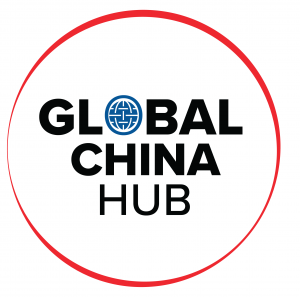Global China Newsletter: Don’t believe the (friendshoring/derisking) hype
Subscribe to the Global China Hub
Much attention has recently been paid to the disappearance of Chinese Foreign Minister Qin Gang. As our editor-in-chief Tiff Roberts details below, this bizarre set of circumstances resulted in Qin’s replacement by his predecessor, Politburo member and top diplomat Wang Yi.
But this drama also underscores the rising importance of the Ministry of Foreign Affairs, traditionally a weak bureaucratic player in the Chinese system. China’s need for effective diplomacy was highlighted by a Pew survey published last week that revealed negative views of China are at historic highs across high-income countries. At a time when Xi Jinping is looking to burnish China’s image abroad, brokering deals in the Middle East and portraying itself as a force for peace in Ukraine, over 70 percent think China does little or nothing at all to contribute to global peace and security.
A majority also now view China as interfering in the internal affairs of other countries, likely a result of documentation of China’s mounting transnational repression and influence in many developed democracies. China fares better in middle-income countries, which value the economic benefits of engaging China, but even in these countries negative ratings of China have grown since the pandemic.
As Tiff, our newsletter’s editor-in-chief and author of the Substack, Trade War, details below, these dynamics have major implications for everything from allied approaches to “derisking”, to shifting supply chains, to China’s approach to debt restructuring.
Take it away, Tiff!
-Dave Shullman, Senior Director, Global China Hub
China Spotlight
Thank you, Dave! As the new editor-in-chief of the Global China newsletter, I aim to provide my readers with some of the most important China news and analysis every month. My take is informed by my earlier experience working as a journalist in China for almost a quarter century and the research and writing I do on China today. I hope you find our newsletter valuable.
Qin Gang, Qin Gone?
Puns aside, the disappearance of China’s 57-year-old former foreign minister, who hasn’t been seen in public for over a month and recently was replaced by previous foreign minister Wang Yi, has dominated the news. I remember my interactions with the reserved but sometimes witty Qin from when his job was overseeing foreign journalists in China. There was the New Year’s party when Qin, who later acquired a “wolf-warrior” reputation, told me and another reporter we three were more similar than we realized. Eventually, he revealed the surprising fact that during his early career, he worked as a news assistant for a foreign media organization–UPI.
The awkward reality that Qin has suddenly departed the diplomatic scene probably doesn’t really matter: his replacement will carry out the policies of China’s most senior officials, and of course that of Xi Jinping, who has amassed unprecedented power and seems to have a somewhat jaundiced view of the US and the West. With policy decided at the very top, how much influence can visiting senior American officials have and can they help put the relationship on a more even keel? Those questions are being put to the test with US dignitaries Secretary of State Antony Blinken, Treasury Secretary Janet Yellen, climate envoy John Kerry, and likely in late August, Commerce Secretary Gina Raimondo, all traipsing to Beijing.
Can’t compartmentalize economics from politics
Don’t hold your breath. Given the deep gulf between the two countries, both sides err in how they manage the bilateral relationship. Take the Treasury Secretary’s recent visit: “Yellen’s attempts to compartmentalize areas of cooperation between the two countries will fall flat, as Chinese policymakers do not bracket off China’s economic relationship with the United States from their political disputes with Washington,” argues the GeoEconomics Center’s Hung Tran. Similarly, Beijing is wrong in thinking it can return to the less complicated days of the past, when simply rolling out the red carpet could substitute for thorny negotiations (we saw Beijing’s nostalgia for that old script when Xi recently met visiting former secretary of state Henry Kissinger, calling him an “old friend.”)
As the US blocks China’s access to advanced technology and particularly semiconductors, something we look at regularly at the Atlantic Council, a now popular argument made by the Biden administration is the intention is not to decouple but to de-risk. That, too, falls flat: “Chinese officials see both de-risking and decoupling as efforts to hinder China’s economic growth,” and state visits “will not meaningfully improve US-Chinese relations, as the two nations’ core interests remain at odds with each other,” Hung writes.
Is ‘friendshoring really working?
GeoEconomics Center’s Niels Graham and Mondrita Rashid ask this question in a new report (the phrase coined by Yellen speaking at the Atlantic Council about a year ago refers to moving supply chains to US partners such as Taiwan, India, Vietnam, and Mexico.) The answer: very slowly. “Anyone expecting friendshoring to result in a quick and decisive uncoupling of the US economy from China will find little in the past year’s data,” the authors write, noting still high volumes of information and technology and public health imports from China as evidence.
The possibility of supply chains moving to Latin America and the Caribbean as part of ‘friendshoring’ was discussed by Senators Bill Cassidy (R-LA) and Michael Bennet (D-CO) as well as lawmakers from Costa Rica, Guatemala, and Panama, in an event hosted by the Atlantic Council.
Economic coercion and debt restructuring
The forces pushing de-risking are for real. In an interview I did with US Ambassador to Japan Rahm Emanuel in my new role as Director of China Affairs at the Mansfield Center, I was reminded how much Chinese economic coercion has been an impetus for supply chain diversification. As the former mayor of Chicago said to me, “we can’t go back five years ago. COVID, coercion, and conflict changed the world. And then the other alternative–we are all deglobalizing–that’s not happening either . . . cost and efficiency are being replaced by safety and sustainability.”
Taiwan with its deep reliance on energy imports is particularly vulnerable to Chinese coercion, as the Global Energy Center’s Joseph Webster explains. China, for its part, is also taking steps to ensure its economy and infrastructure are less vulnerable. As Webster writes in another piece, China’s distributed solar deployment may be motivated by strategic, rather than economic considerations, with the aim of ensuring the resiliency of its grid in the event of a military standoff over Taiwan.
One area Emanuel cited as a facet of China’s economic coercion, the imposition of onerous debt conditions, including through the Belt and Road Initiative, may actually be improving. “After more than three years of debt distress across the developing world, there is a glimmer of hope as government and private-sector creditors finally take the first steps to restructure debt,” write the GeoEconomics Center’s Jeremy Mark and journalist Vasuki Shastry in a paper, citing the decision by government creditors led by China to restructure $6.3 billion of Zambian debt.
China’s global influence keeps getting bigger.
ICYMI
- The Digital Forensics Lab’s Kenton Thibaut published a report on China’s digital strategy and its impacts in the Global South as part of the “discourse power” series, which outlines China’s attempts to shape the global information environment.
- The Atlantic Council Strategic Litigation Project’s Rayhan Asat, who submitted a comprehensive report on the human rights situation in Xinjiang, argues in a New Atlanticist article that the Biden administration must press harder on these issues throughout any reconciliation efforts with China.
- In a new ACTV production, the Scowcroft Center’s Peter Engelke and the Global China Hub’s Emily Weinstein discuss the findings of their latest report, “Winning the tech race with China” in which they recommend a three-pronged strategy: “protect, promote, and coordinate.”
- According to the GeoEconomics Center’s Phillip Meng, China is far from the only country seeking to grow investments and expand trade opportunities in Africa; South Korea, Japan, and India are rapidly gaining ground in trade volumes with the region.

Global China Hub
The Global China Hub researches and devises allied solutions to the global challenges posed by China’s rise, leveraging and amplifying the Atlantic Council’s work on China across its 15 other programs and centers.

Follow us on Twitter @ACGlobalChina